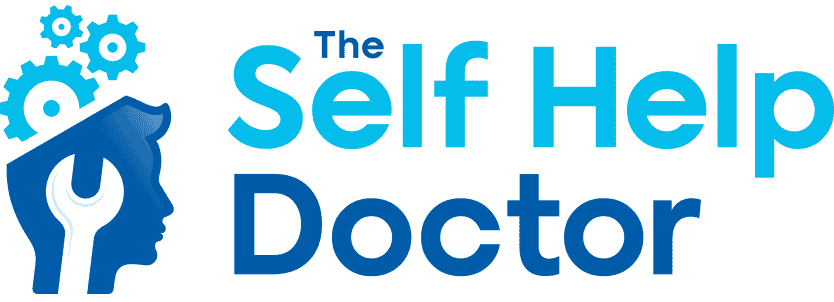Empower Yourself: Discover Solutions for Effective Anger Management

Empower Yourself: Discover Solutions for Effective Anger Management
Anger can feel like a storm within you, leaving you drained and regretful. You’re not alone in this struggle, and managing it is possible with the right tools. Imagine harnessing CBT techniques to transform how you respond to life’s challenges. This isn’t just about calming down; it’s about understanding and regulating emotions effectively. Discover practical solutions that empower you to take control.

Anger management involves learning to recognize and control anger to prevent it from affecting your life negatively. Various solutions and therapies can address anger issues effectively, providing techniques for emotional regulation. By understanding these options, you can choose what works best for managing your emotions.
Types of Anger Solutions
Different strategies can help manage anger. One approach is cognitive-behavioral therapy (CBT), which focuses on changing thought patterns that trigger negative emotions. Another method is dialectical behavior therapy (DBT), which combines cognitive therapy with mindfulness practices.
Group therapy offers a supportive environment to share experiences and learn from others. In contrast, individual therapy provides personalized attention to address specific challenges. Self-help courses offer flexibility and privacy, allowing individuals to learn techniques at their own pace.
For those seeking alternatives, techniques like mindfulness meditation and relaxation exercises can be effective. These practices reduce stress and enhance emotional control. To learn more, explore resources such as Positive Psychology or Verywell Mind.
Benefits of Emotional Regulation
Emotional regulation is key to managing anger effectively. It involves understanding and controlling emotional responses to various situations. This skill can lead to healthier relationships and improved well-being. By practicing emotional regulation, individuals can respond to challenges more calmly.
Effective emotional regulation can reduce physical symptoms of anger, such as increased heart rate or tension. It also helps in making thoughtful decisions rather than reacting impulsively.
Moreover, emotional regulation fosters resilience, allowing individuals to bounce back from setbacks more quickly. By mastering these skills, you can enjoy a more balanced and satisfying life. For further insights, check resources like Canyon Santa Monica or Larkin Health.
Exploring CBT Techniques

CBT techniques are practical tools for managing anger. They focus on identifying and altering negative thought patterns. By using these techniques, individuals can develop healthier responses to stressors, leading to more effective anger management.
Practical CBT Strategies
CBT involves several strategies to manage anger. First, identify triggers by keeping a journal of situations that provoke anger. This awareness helps in understanding patterns and potential solutions.
Next, challenge negative thoughts. Replace them with more realistic perspectives. For instance, if you think, “This always happens to me,” reconsider it as, “Sometimes things don’t go as planned, and that’s okay.”
Finally, practice relaxation techniques. Deep breathing or progressive muscle relaxation helps in calming the mind and body. Engaging in regular physical activity can also reduce stress and improve mood.
These strategies empower individuals to cope with anger more effectively. To explore these techniques further, consider accessing resources like Positive Psychology.
Self-Help Course Advantages
Self-help courses offer several advantages for anger management. They provide flexibility, allowing individuals to learn at their own pace without scheduling constraints. This convenience makes it easier to integrate learning into daily life.
Additionally, self-help courses ensure privacy. Individuals can explore sensitive topics without the pressure of sharing with a therapist or group. This can lead to more honest self-reflection and growth.
Self-help courses also offer structured learning. By following a set curriculum, individuals can progressively build skills and track their progress. They often include a variety of resources, such as exercises and reading materials, to enhance understanding.
For those interested in exploring self-help for anger management, consider options like Self Help Doctor’s online platform.
Online Therapy and Resources

Online therapy and resources provide accessible support for anger management. They offer various tools and platforms for individuals to explore their emotions and develop effective coping strategies.
Accessing Online Therapy
Online therapy offers several benefits, including accessibility and convenience. Individuals can connect with professionals from the comfort of their own homes, eliminating the need for travel. This flexibility makes it easier to fit therapy into busy schedules.
Moreover, online therapy often provides a wider selection of therapists and support groups. This variety ensures that individuals can find the right fit for their needs. Sessions can be conducted via video calls, chat, or email, providing multiple options for communication.
Additionally, online therapy platforms often offer supplementary resources, such as articles or forums, to enhance learning and support. To find out more about online therapy, visit Verywell Mind and Larkin Health.
Empowerment Through Self-Help Tools
Self-help tools empower individuals to take charge of their anger management journey. These tools offer practical techniques and exercises to develop emotional regulation skills. By using these resources, individuals can gain confidence in handling challenging situations.
Some self-help tools include journals to track emotions, meditation apps for relaxation, and workbooks with exercises to practice new skills. These tools provide structure and guidance, making it easier to integrate learning into daily life.
Engaging with self-help tools fosters a sense of empowerment and independence. Individuals learn to rely on their skills and resources to manage emotions effectively. For more information on our self-help course, explore the “Healthy Mindset Toolkit” here. Alternately, experience the first week free in our “Unhealthy Habits” mini-course.
🌟





